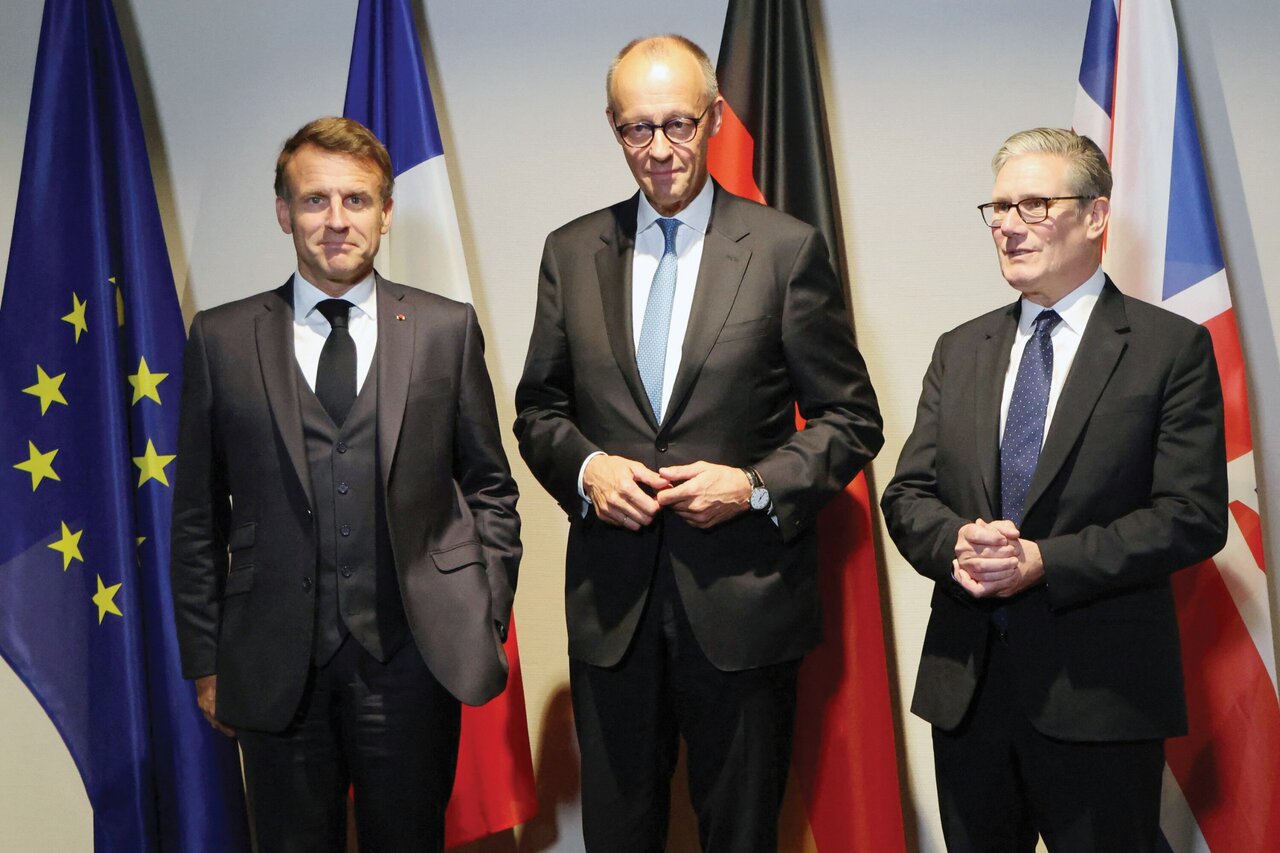Europe’s Snapback Gamble
Unofficial sources say the European troika plans to unlawfully trigger the reimposition of UN Security Council sanctions against Iran

TEHRAN – In a move that could further escalate tensions with Iran, Britain, France, and Germany—collectively known as the E3—are reportedly preparing to trigger the so-called “snapback” mechanism of the 2015 nuclear deal.
According to Reuters, the European trio intends to formally begin the process of reimposing United Nations sanctions on Iran as early as Thursday, while leaving open the possibility of delaying actual enforcement for 30 days should Tehran offer new commitments regarding its nuclear program.
Diplomats involved in the Geneva talks acknowledged that Tuesday’s meeting between Iran and the E3 produced no concrete outcomes. Despite their stated willingness to leave space for further diplomacy, the Europeans appear determined to keep snapback on the table, ostensibly to prevent the expiration of UN Security Council Resolution 2231 in mid-October. That resolution, adopted after the 2015 Joint Comprehensive Plan of Action (JCPOA), lifted sanctions in exchange for nuclear restrictions and was set to lapse ten years after its signing.
Yet beyond the technicalities, the E3’s attempt to wield snapback underscores Europe’s deeper struggle: it is trying to demonstrate geopolitical authority at a moment when its subordination to Washington has never been more obvious.
Just days ago, European leaders made a highly publicized trip to Washington for a summit with President Donald Trump on the Ukraine crisis. Far from displaying unity, the optics of the meeting were widely seen as humiliating for Europe.
Images circulated across global media showed Trump seated grandly at the Resolute Desk while European leaders—British Prime Minister Keir Starmer, German Chancellor Friedrich Merz, French President Emmanuel Macron, Italian Prime Minister Giorgia Meloni, and others—sat cramped on the opposite side. Even sympathetic outlets in Europe could not ignore the imbalance: what was meant to project solidarity revealed instead a stark hierarchy, with Trump as the sole power broker and Europe reduced to vassals.
It is against this backdrop of diminished stature that the E3 is reaching for the snapback lever on Iran.
Iran has consistently rejected snapback as illegitimate. The mechanism was originally built into the JCPOA to reassure signatories that sanctions could swiftly return if Iran breached commitments. But Tehran argues that after the United States unilaterally withdrew from the deal in 2018, Washington forfeited any right to invoke it.
Europe’s position is even weaker. Having failed for years to honor its economic obligations under the accord—such as facilitating trade mechanisms to offset U.S. sanctions—the E3 now claims the right to punish Iran for alleged violations. Tehran insists they lack both legal standing and moral authority to do so.
Even within international law, the case is tenuous. Resolution 2231 was a negotiated balance among all parties, including Russia and China. For Europe to attempt snapback without consensus risks collapsing the very framework they claim to preserve.
If the E3 presses forward, the likely outcome is not renewed leverage but further erosion of the deal’s credibility. As Iranian officials have repeatedly stated, any attempt to reimpose sanctions effectively nullifies the JCPOA.
Tehran has also warned of a “harsh response” should Europe follow through. Yet in practical terms, Iranian leaders know that sanctions are nothing new. For decades, the Islamic Republic has operated under one form or another of Western economic restrictions.
The past fifteen years in particular have seen cycles of draconian measures—banking restrictions, oil embargoes, technology bans—designed to isolate Iran. While these have imposed undeniable costs, they have also forced the country to adapt, fostering self-sufficiency and innovation across key sectors. Iran’s advances in aerospace engineering, biotechnology, pharmaceuticals, and nuclear technology itself have often accelerated precisely because external pressure left no alternative but to develop domestic capabilities.
For this reason, Tehran views Europe’s snapback threat as more symbolic than material. The return of UN sanctions would not fundamentally change the conditions under which Iran already operates. Instead, it would confirm once again that Western promises of diplomacy cannot be trusted.
Meanwhile, the nuclear file itself remains contested. UN inspectors returned to Iran this week for the first time since Tehran suspended cooperation following U.S. and Israeli strikes on its nuclear facilities in June. Yet no agreement has been reached on the scope of their work or access to sites.
The E3 has offered to delay snapback for up to six months if Iran resumes full inspections and engages in talks with the United States. But here too lies a contradiction: Europe is conditioning diplomacy on the very threat of sanctions, a tactic unlikely to succeed with a nation accustomed to pressure.
Iran has indicated willingness to resume dialogue with Washington under one condition: guarantees that negotiations will not be accompanied by fresh military strikes. Given the June assault on Iranian facilities, which was coordinated between Israel and the United States, this demand is neither trivial nor unreasonable.
Leave a Comment